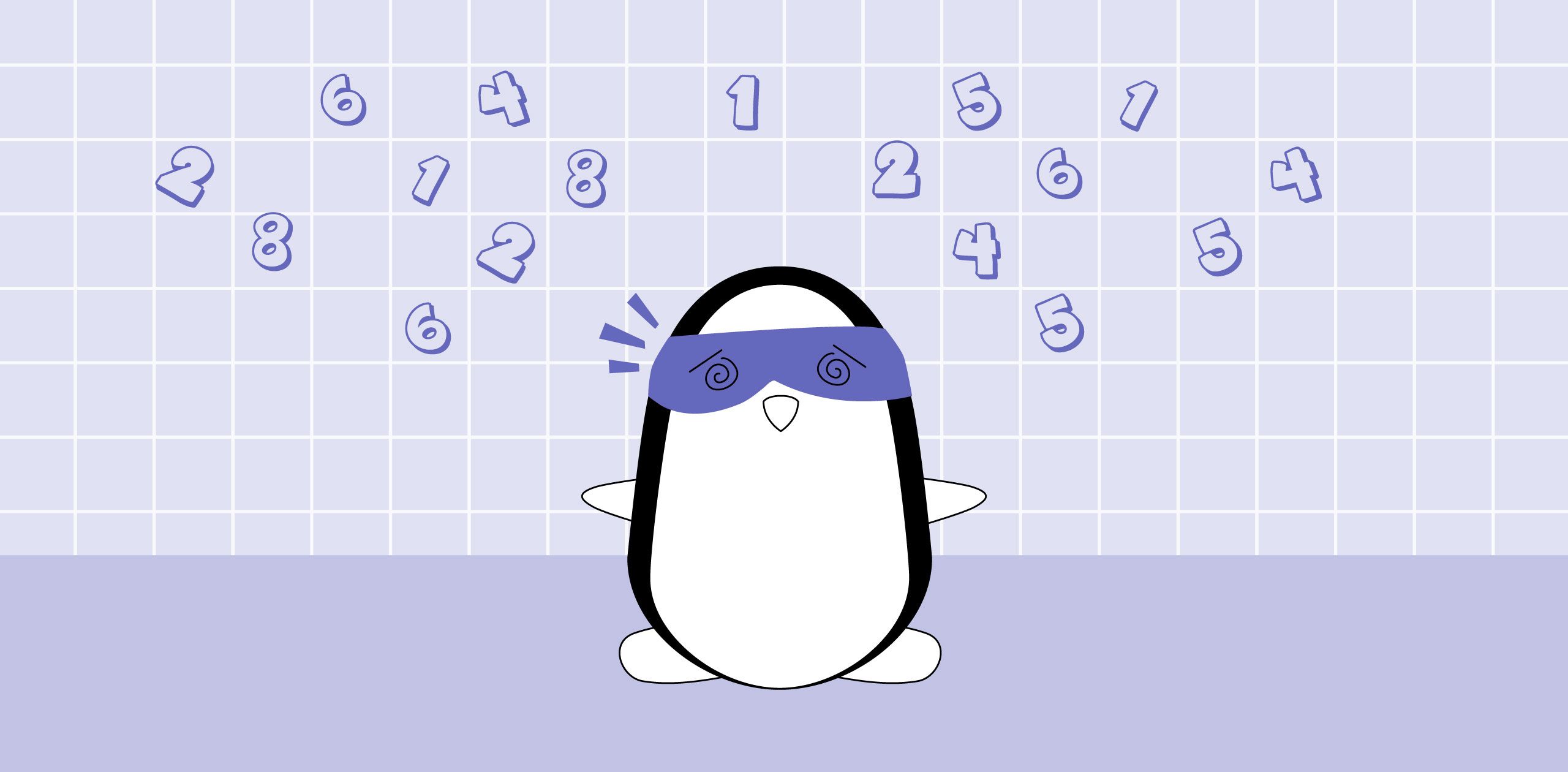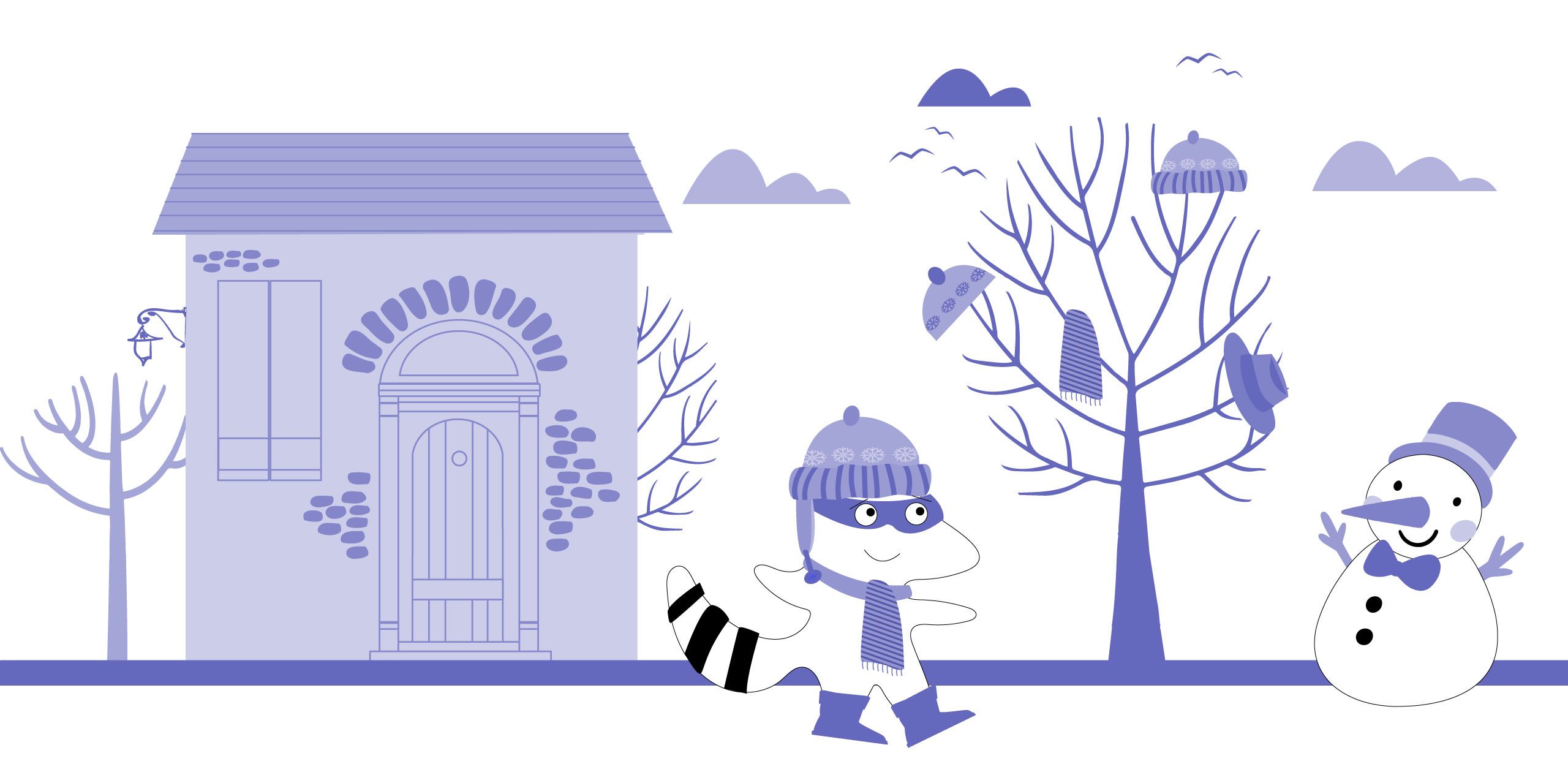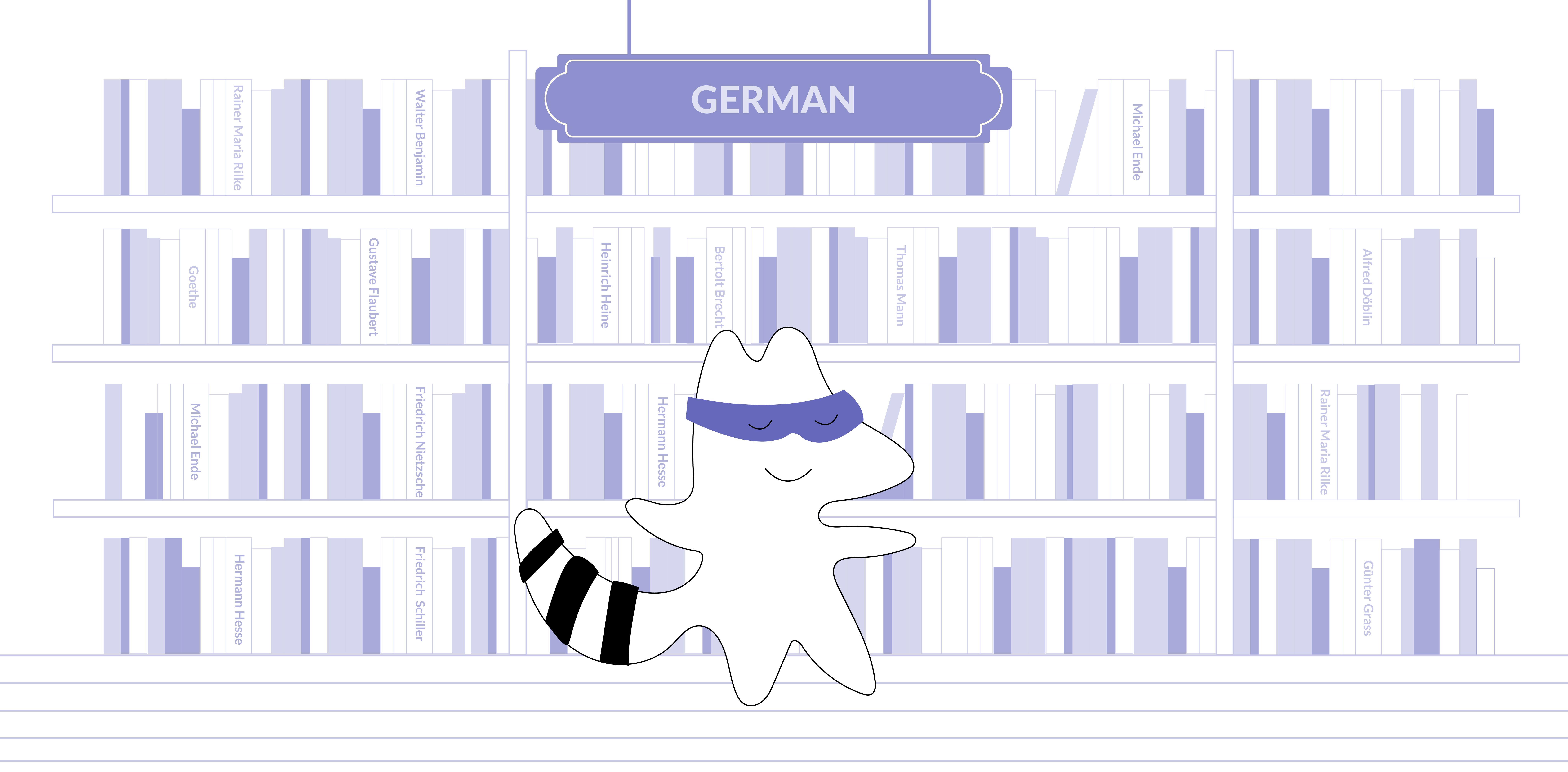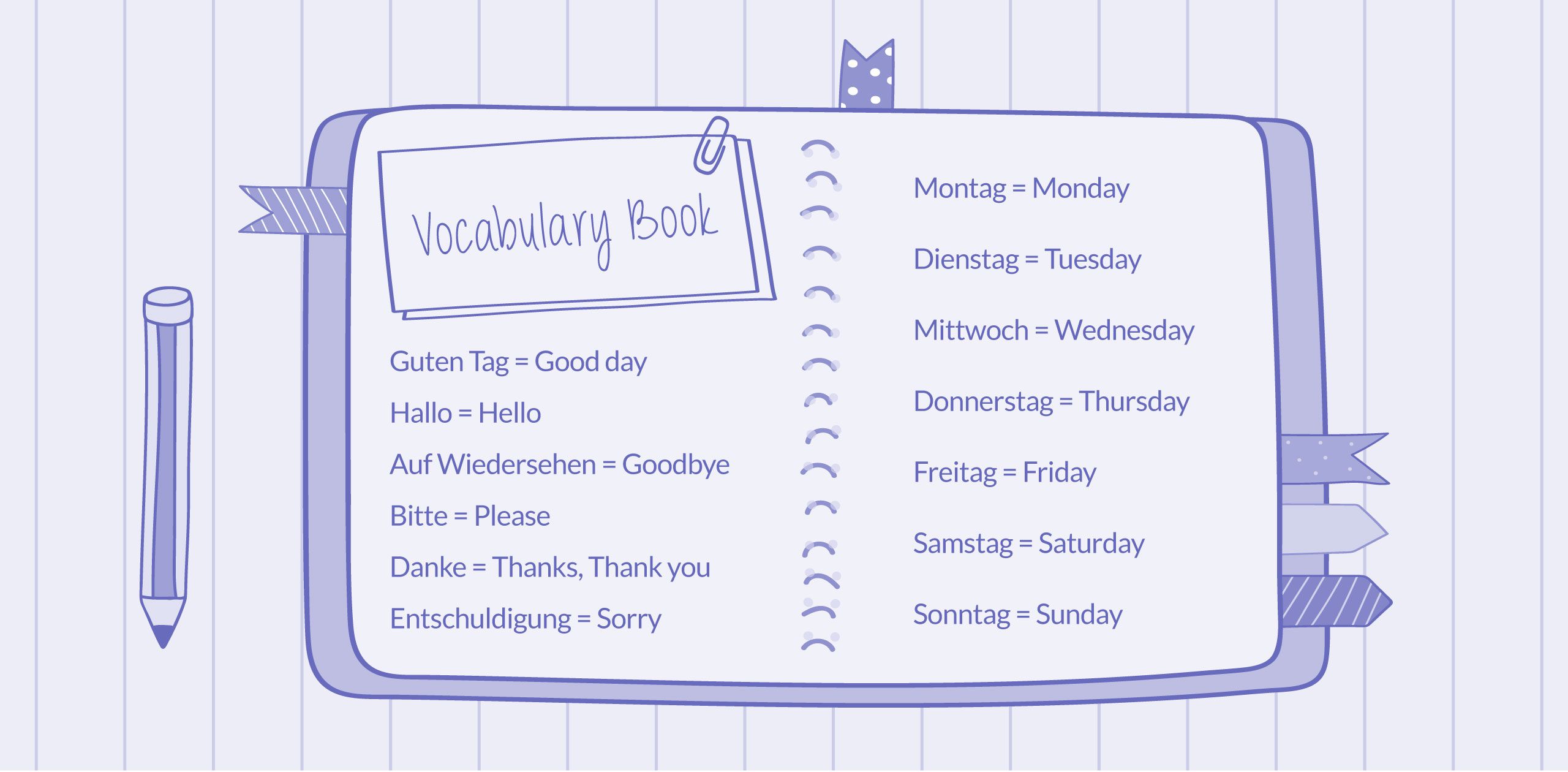
Building vocabulary is an important part of learning a foreign language. In order to become fluent in German, you need to know a lot of words related to different topics. Fortunately, today, you don’t have to do that by simply memorizing German vocabulary as many kids had to do in school.
You can find many different methods to build your German Language vocabulary, but the best way to find out what works for you is to try a variety of them. In this article, let’s explore eight different methods that can help you build your German vocabulary. Read on to find a style of learning new words that can be not only productive, but also enjoyable.
Learn German with Langster
Try the Classics: Create a Vocabulary Book
One tried and true way to learn German vocabulary is to create your own vocabulary book. This can be as simple as a notebook. In it, write down new words as you come across them with their English translation and a brief definition or example sentence. You can also get more elaborate by creating different sections for different topics, such as food, travel, animals, etc.
This approach has a few benefits. For one, it helps you take the time to really learn the words you’re adding to your vocabulary. You might not have the opportunity to immediately use all of the words you learn in conversation or writing, but by adding them to your vocabulary book, you can review them regularly and make sure they stick.
Additionally, having your own vocabulary book is a great way to track your progress and see how much you’ve learned over time. If you’re feeling extra motivated, you could even try competing with yourself to see how many new words you can add each week or month.
Use a Spaced Repetition App
If you’re looking for a more modern way to learn German vocabulary, there are now many apps that use the spaced repetition technique to help you commit words to memory. This technique is based on the idea that you should review information at specific intervals in order to keep it fresh in your mind and avoid forgetting it.
A spaced repetition app will present you with a word or phrase along with its translation and an example sentence. After each review, the app will track how well you remember the word and present it to you again at increasingly longer intervals. This way you can efficiently review words and make sure they don’t slip your mind.
There are many different spaced repetition apps available, so it’s definitely worth trying out a few to see which one you like best. Some popular options include Anki, SuperMemo, and Memrise, but we definitely recommend trying Langster first – there, you learn both new German words and you can acquire other necessary German language skills, such as reading, listening or grammar.

Try German Flashcards
Another great way to learn German vocabulary is with flashcards. You can use physical flashcards or download an app. You can also buy the ready-made ones in a store online or offline or create your own flashcards.
With this method, you create a deck of cards, with each card featuring a German word or phrase on one side and the English translation on the other. You can then go through the deck regularly, testing yourself on the words and flipping the card over to check your answer.
As you become more familiar with the words, you can pull the cards that you know well out of the deck, so that you can focus on those that you still need to work on.
This method is especially effective if you find yourself forgetting words that you’ve already learned. By seeing the word regularly and testing yourself on it, you can make sure it stays fresh in your memory.
Learn New Words Every Day
One of the best ways to ensure that you’re constantly learning new German vocabulary is to set a goal of learning a certain number of new words each day. This could be as few as five or ten. The key is to pick a number that you know you can realistically achieve without too much effort.
There are a few different ways you can go about this. One is to simply make a list of new words each day and review them regularly. Another is to find German articles or texts that are at your language level and highlight any new words that you come across. You can then look up the meanings of these words and add them to your vocabulary list. Or, if you already know most of the words, look for their synonyms or antonyms.
Some people also like to set aside specific times for learning new vocabulary, such as first thing in the morning or right before bed. This can help to ensure that you actually make time for it in your busy schedule.
Whatever approach you decide to take, the important thing is to be consistent with it and stick to your goal. Over time, you’ll be surprised at how quickly your German vocabulary will grow.

Enjoy German Content
One of the best ways to learn German vocabulary is simply to immerse yourself in the language as much as possible. This means listening to German audio, watching German TV shows and movies, and reading German books, articles, and blogs.
This method is especially effective if you’re already familiar with the basic grammar and sentence structure of German. As your listening comprehension improves, you’ll be able to pick up on more and more words and phrases, even if you don’t know their meanings.
A great option is to watch TV shows or movies in German with subtitles – either in your native language or in German. This will boost the listening comprehension even more since you will acquire new vocabulary directly in context.
Talk to Yourself in German
One of the best ways to practice German vocabulary is to simply start using the words you know in your everyday life. A great option is to talk to yourself in German when no one else is around.
This might sound strange at first, but it’s actually a great way to practice your speaking skills and learn new vocabulary. You can talk about anything you want, from what you did that day to your plans for the future. The key is just to get used to saying the words out loud.
You can also use this method when you’re doing other things, such as cooking, cleaning, or walking the dog. Instead of thinking in your native language, try thinking – and saying – everything in German. It might be tough at first, but it will get easier with practice.
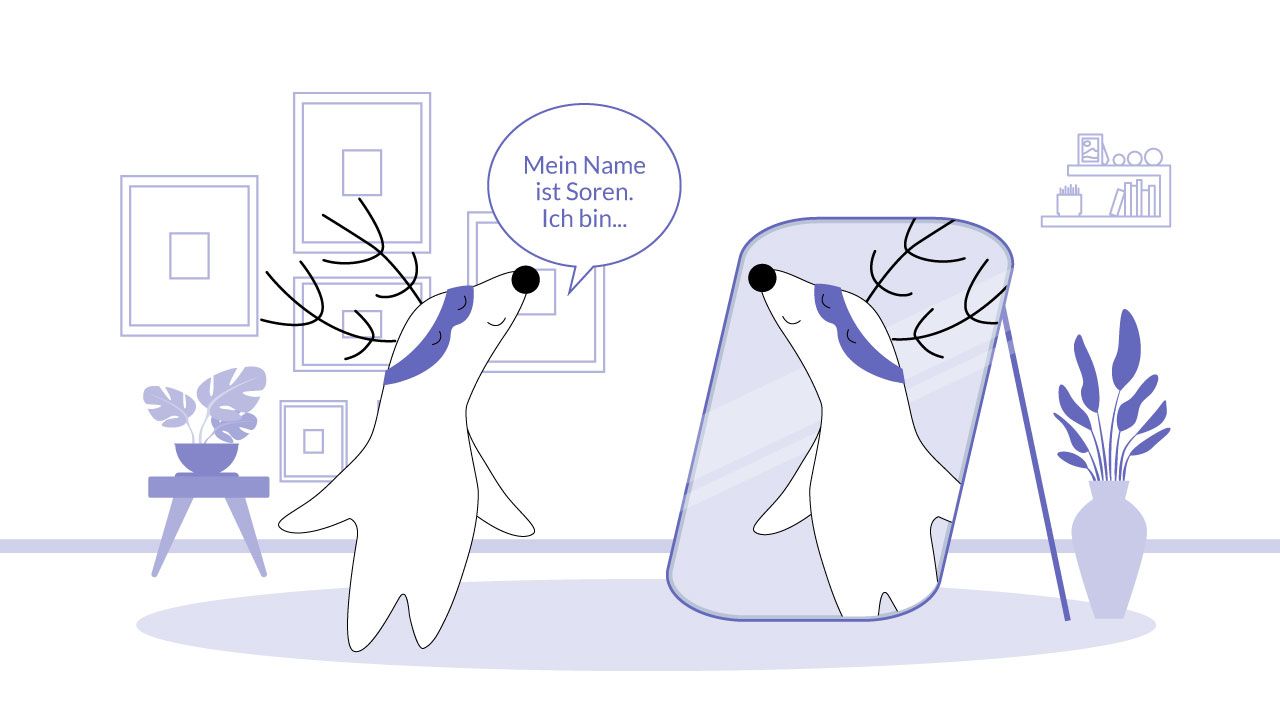
Write in German
Another great way to practice German vocabulary is to start writing in the language. This doesn’t mean that you have to write a novel or anything like that. Just keep a journal where you write a few sentences in German every day.
This is a great way to review the words and phrases you already know and to learn new ones. As with speaking, it might be tough at first, but it will get easier over time. You can also find German-language pen pals online and text them on a regular basis.
An added benefit of this method is that it can also help improve your grammar skills. As you become more comfortable writing in German, you’ll start to notice errors in your own language.
Learn New Vocabulary Relevant to Your Interests
Are you tired of learning random vocabulary? Then focus on words that are relevant to your interests. If you love sports, for example, you can learn German words related to football, basketball, or whatever sport you enjoy. Or if you’re interested in fashion, you can learn vocabulary related to clothing, makeup, and accessories.
You can find lists of relevant vocabulary online, in German dictionaries, or in German vocabulary books.
The key is to find something that you’re passionate about so that learning the new vocabulary is enjoyable. When you’re interested in the subject matter, it will be much easier to motivate yourself to actually sit down and study.

Look for Ways to Turn Your Life into a German Vocabulary Builder
These are the most popular ways that work for many language learners, but of course, there are so many more. If nothing from our list works for you, don’t stop looking for your perfect method of learning German vocabulary.
After all, the best way to build vocabulary in German is to try a bunch of different things and see what works best for you. There are a variety of proven methods that can be successful, which means you will definitely find your own perfect way to learn new German vocab.
Remember though, that the key is to do something that you enjoy and that you can be consistent with. Whatever approach you decide to take, be patient and persistent. With time and practice, your German vocabulary will grow quickly, and you will acquire the level of German fluency you strive for.







